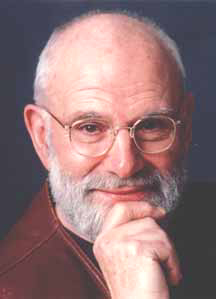
What makes a jazz solo great? Why do musicians keep coming back to certain master players for inspiration in developing their own skills and style? Is there any single quality common to the most admired (and most transcribed) solos in the jazz tradition?
Rhythm, whether it is a sense of swing or groove or an individual player's use of rhythmic elements, is crucial, of course. Note choices (the "melody" or pitch content) is also critically important. Dynamics, articulation, style... all of these factors contribute to the overall quality of a jazz performance. But I would argue that none of these elements, taken separately, inevitably makes for a great, memorable solo.
It seems to me that, to be effective in a deep way, a solo must breathe. There must be a dynamic sense of phrasing where all of the individual musical elements converge in a convincing way. The oft-mentioned balance between the expected and the unexpected is certainly a part of this, but it is more than toying with the listener's expectations that gives a solo that certain something that makes it all but unforgettable.
The music must breathe. There must be a sense of line, of phrase, a certain elegance and balance. Horn players have a bit of an advantage in accomplishing this goal. After all, one must literally breathe to operate brass and woodwind instruments! Rhythm instruments can be played continuously, no "stopping" to breathe is necessary.
Of course, letting the music breathe is not just a matter of physical necessity. When you think of a great tune, classical piece or jazz solo is it possible to grasp it as a whole? It seems to me that we recall music in chunks or phrases that stick with us and, when put in context, somehow hang together with a feeling of inevitability. It is almost as if the piece HAD to unfold the way it did for it to make such a powerful impression.
As I write this I keep hearing Donna Lee in my mind's ear. That tune has a marvelous shape; it breathes in exactly the way I'm trying to describe. Charlie Parker was a master of all of the elements of jazz improvisation (that is certainly stating the obvious!). But if you analyze his solos in terms of phrasing - where he plays, where he leaves space, the varied length of phrases he plays, the shapes of the lines he plays; his music breathes in such a masterful, elegant way. That sense of inevitability is most definitely present in many of his solos, and Donna Lee (essentially a composed solo on the changes to Back Home In Indiana) is a great example of this quality.
Jazz musicians spend a lot of time working on fundamentals - scales, arpeggios, transcribing, ear training etc. If you're reading this you no doubt know exactly what I'm talking about. Becoming an effective soloist with something to say takes a lot of effort and time.
Here's a suggestion for the coming year's practice sessions: put some of your attention on phrasing and breathing regardless of what instrument you play. Listen not only to the great instrumentalists but also to the great vocalists. Pay attention not only to when they breathe, but also why they chose to start or end a phrase where they did. Experiment with varying lengths of your phrases. You can do this while working on your fundamentals as well as when you're soloing.
Let it breathe.













